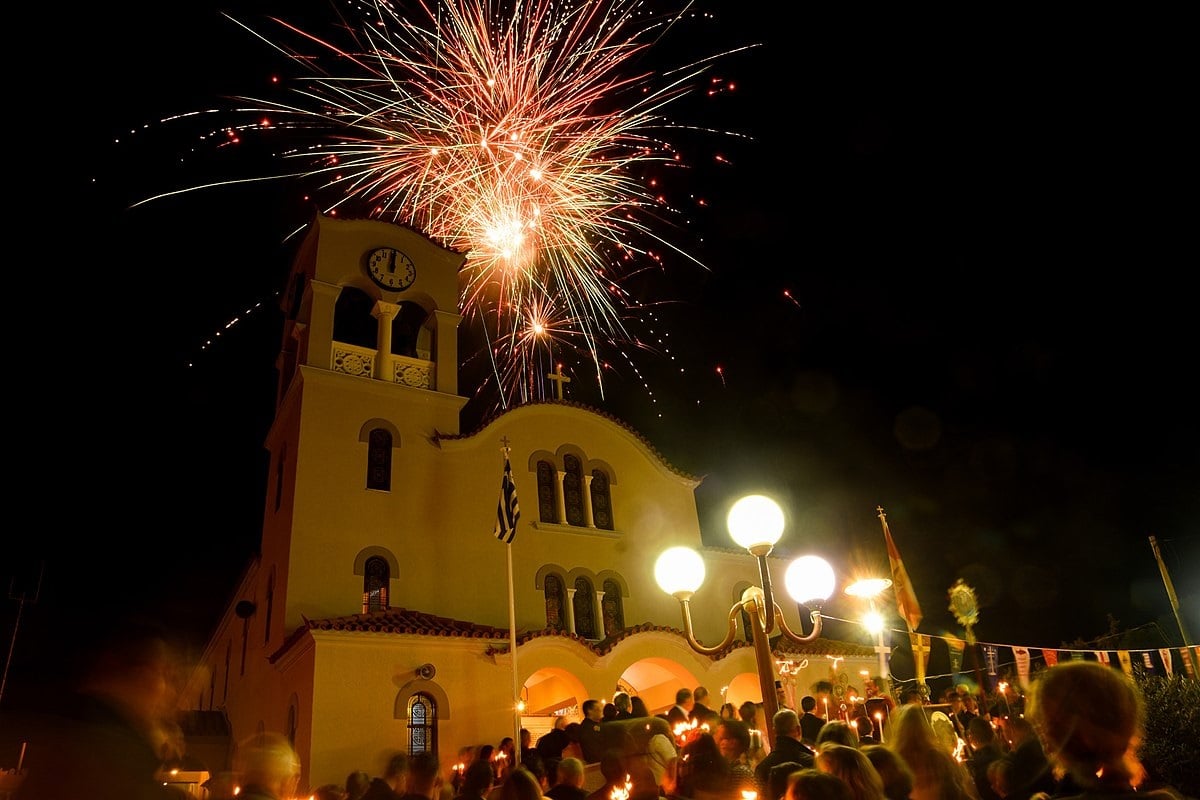

Greece celebrated on Holy Saturday night the Resurrection of Christ at local churches throughout the country.
Across the country, faithful gathered to mark the most sacred day on the Orthodox Christian calendar — Easter Sunday, or Pascha — commemorating the Resurrection of Jesus Christ with centuries-old customs that blend solemnity, joy, and deep-rooted cultural tradition.
The Easter celebration began late, as thousands attended the midnight Resurrection service known as Anastasi. In churches across the country, lights are dimmed in anticipation until the Holy Flame, representing the light of Christ, is passed from the altar to the congregation.
Just as the clock struck midnight, the priest proclaimed, “Christos Anesti!” (Christ is Risen!), echoed joyfully by the congregation: “Alithos Anesti!” (Truly, He is Risen!).
Christ is risen from the dead,
by death trampling death,
and to those in the tombs
granting life!
The hymn is part of the Paschal Divine Liturgy of the Byzantine Rite, and it was certainly in use in the 5th or 6th century. Its ultimate origin is unknown.
Fireworks lit up the skies, bells rang, and emotional embraces were shared among family and friends.
Worshippers carefully carried their lit candles back home, guarding the flame from the wind — a symbolic act believed to bring blessings. A traditional cross made from the candle’s soot is often marked above the doorway, serving as a protective blessing for the year ahead.
Then at dinner tables, egg cracking, or tsougrisma (τσούγκρισμα in Greek), started.
The red-dyed eggs are tapped against each other and cracked together between two people as they exchange the traditional Easter greeting “Christos anesti!” (“Christ has risen”) – “Alithos anesti!” (“He Truly Has”).
Greeks have been cracking red eggs at Easter for many centuries. The tradition, although it is also a fun game, is of course steeped in religious symbolism as well.
The egg in itself is a symbol, as its hard shell represents the sealed tomb of Jesus — the cracking of which symbolizes His resurrection from the dead and exit from the tomb.
This was followed by the traditional Easter soup “magiritsa”, a Greek soup made from lamb offal. Greek-Americans and Greek-Canadians sometimes call it “Easter soup”, “Easter Sunday soup”, or “Easter lamb soup”.
Magiritsa, which breaks the 40-day Great Lent period, is considered to be the best meal to gradually ease your digestive system back into its regular eating habits after the fasting period.
In some parts of Greece, most notably Thessaly, it is not served as soup but rather as a fricassee, where it contains only offal and a large variety of vegetables, but no onions or rice, as in the soup.
